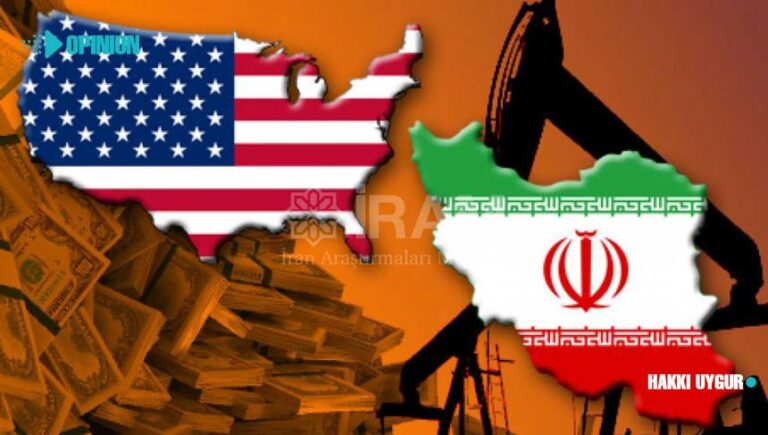The United States has announced a new round of sanctions targeting Iran, the Treasury Department disclosed on Tuesday, escalating economic pressure amid ongoing concerns over Tehran’s nuclear activities and regional influence. The latest measures aim to curtail Iran’s access to financial networks and deter violations of international norms, reinforcing Washington’s commitment to enforcing stringent diplomatic and economic constraints. This move arrives as tensions between the two nations continue to shape geopolitical dynamics in the Middle East.
US Expands Sanctions Targeting Iranian Entities and Individuals
The US Department of the Treasury has unveiled a new wave of sanctions aimed at individuals and organizations linked to Iran’s nuclear and missile programs. These measures are designed to curb Tehran’s ability to further develop technologies that could threaten regional stability. Specifically, the sanctions target entities involved in procurement networks that supply materials for ballistic missile development, reinforcing the US commitment to enforce existing international agreements.
Among those sanctioned are key figures overseeing Iran’s military expansion and companies facilitating financial transactions to bypass global restrictions. The Treasury highlighted the following elements in their announcement:
- Freezing of assets held within US jurisdiction
- Prohibition on US persons engaging in transactions with designated entities
- Enhanced scrutiny on international banks linked to Iran’s procurement chains
| Sanction Category | Targeted Sector | Key Objective |
|---|---|---|
| Financial | Banking and Transactions | Cutting off funding routes |
| Material Procurement | Ballistic Missile Development | Restricting supply chains |
| Individual Sanctions | Military Leadership | Undermining operational control |
Implications for Global Trade and Financial Networks Explored
The latest sanctions imposed by the US Treasury targeting Iran carry significant repercussions for global trade dynamics and the intricate web of international financial networks. Companies and banks operating across borders must now navigate a rapidly evolving compliance landscape, where transactions involving Iranian entities face heightened scrutiny. This development threatens to disrupt established supply chains, particularly in sectors reliant on Middle Eastern commodities and manufacturing components.
Key consequences for the global economy include:
- Increased transaction monitoring: Financial institutions are implementing advanced due diligence mechanisms to avoid inadvertent violations.
- Trade realignment: Businesses may shift partnerships toward less-restricted markets in response to intensified sanctions.
- Volatility in energy prices: Restrictions can exacerbate uncertainty in oil exports, impacting pricing worldwide.
| Sector | Potential Impact | Geographic Focus |
|---|---|---|
| Banking & Finance | Stricter compliance, transaction delays | Global |
| Energy | Supply disruptions, price fluctuations | Middle East, Europe, Asia |
| Manufacturing | Sourcing challenges, cost increases | Asia, Europe |
Expert Analysis on the Impact of Enhanced Treasury Measures
The recent expansion of US Treasury sanctions targeting Iran introduces a multilayered approach that intensifies financial controls and regulatory oversight. By broadening the list of designated entities and individuals, the Treasury aims to disrupt networks associated with Iran’s strategic economic sectors, including energy, shipping, and technology. This strategic tightening is expected to significantly curb Iran’s access to global financial systems, thereby limiting its ability to fund regional proxies and nuclear ambitions. The enhanced enforcement mechanisms also include improved interagency collaboration, which facilitates quicker identification and freezing of suspicious assets worldwide.
Beyond immediate financial repercussions, these measures could also reshape international business dynamics. Companies operating in jurisdictions with close economic ties to Iran must reassess compliance frameworks to mitigate risks of inadvertent sanctions breaches. The move signals a shift towards more granular scrutiny of cross-border transactions and amplifies the role of financial intelligence sharing. Key implications include:
- Heightened due diligence requirements for global financial institutions.
- Increased operational costs due to compliance upgrades and legal consultations.
- Potential realignment of supply chains to avoid sanctioned entities.
| Sector | Sanctions Focus | Projected Impact |
|---|---|---|
| Energy | Oil exports and refining | Reduced export revenues |
| Shipping | Maritime logistics and insurance | Disrupted trade routes |
| Technology | Dual-use goods | Restricted access to advanced equipment |
Guidance for Businesses on Compliance with New Iran-Related Sanctions
Businesses engaged in international trade must now reassess their operations to align with the latest regulatory framework imposed by the U.S. Treasury. The sanctions target specific sectors linked to Iran’s nuclear and missile programs, calling for heightened diligence in due diligence procedures to avoid inadvertent breaches. Companies are urged to strengthen their compliance controls, with a focus on monitoring transactions involving designated entities, scrutinizing supply chains, and instituting regular employee training on sanction protocols.
Key areas to prioritize include:
- Enhanced screening: Utilize updated databases for real-time checks against newly designated individuals and organizations.
- Risk assessment: Evaluate exposure to Iranian-linked financial institutions and commercial partners.
- Reporting mechanisms: Develop clear channels for internal reporting of suspicious activities.
- Legal consultation: Seek expert advice to interpret evolving regulations and implement corrective measures promptly.
| Sanction Focus | Recommended Action |
|---|---|
| Energy Sector Entities | Cease engagement and report transactions |
| Dual-Use Technology | Implement stricter export controls |
| Financial Institutions | Conduct frequent transaction audits |
To Wrap It Up
The latest round of U.S. sanctions marks a continuation of Washington’s strategy to exert economic pressure on Tehran amid ongoing concerns over its nuclear program and regional activities. As officials from the Treasury Department emphasize enforcement, the impact of these measures will be closely watched by international observers and market participants alike. The evolving dynamics between the two nations remain a focal point in global diplomatic and economic discussions.




